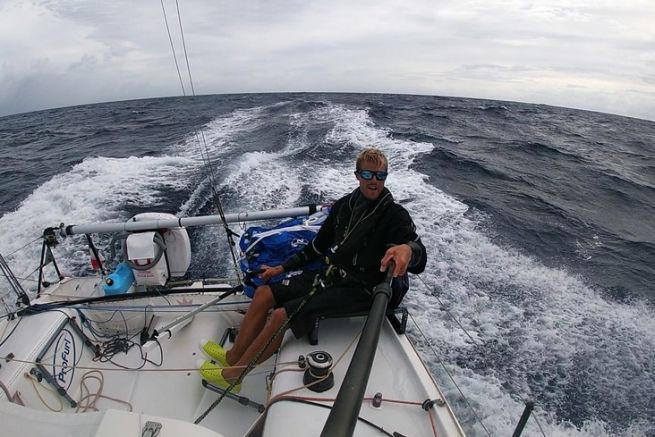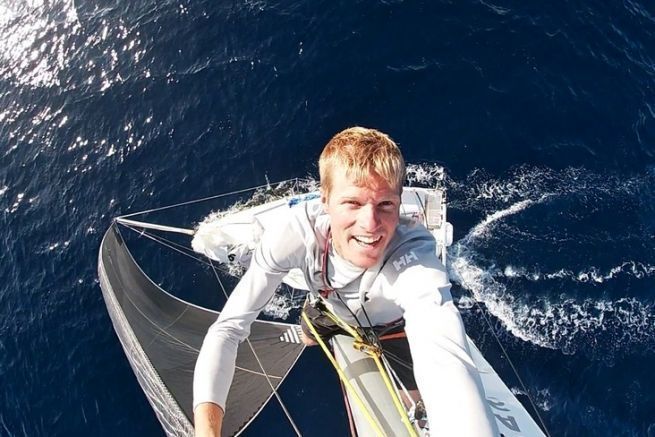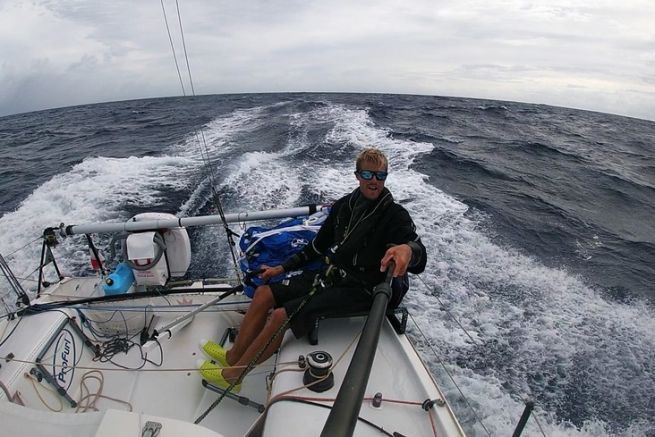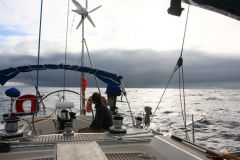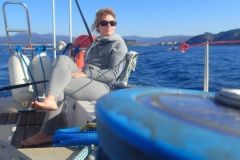Essential qualities and skills
A jack-of-all-trades, naval architect and sailor, Felix de Navacelle likes to alternate between assignments in the design office and in the field. Among the latter, he discovered the job of préparateur alongside Nicolas Lunven on the IMOCA Banque Populaire. If he is taking his first steps in this job, he already has an opinion on the qualities to have.
"You have to have a good handle on the tools already. In itself, it's not very complicated: making a bit of filled resin and sanding a carbon padeye using the pliers and making a few splices are enough." begins Felix.
A perfectionist, Felix takes his mission very seriously.
"I like things done right and I'm willing to take more time to get it right. It's a small flaw, but if it's done right, it won't break at sea. That's the goal of this preparation." explains the sailor and naval architect.
Sailing is another essential skill. It allows you to project the feasibility of the systems on board.
"You have to have good navigational logic. From the pulley return system to larger systems. Everything that is put in place has to be seaworthy and logical. Someone who has never sailed can't be an IMOCA préparateur. It helps to project yourself into the ocean." says Felix.
Exchange and discussion are also two important traits. It is by exchanging that we can make things happen.
"The numerous exchanges with the team, the common reflection allows us to improve each system produced. A good preparer will do the job very well alone, but the team creates an emulation" felix adds.
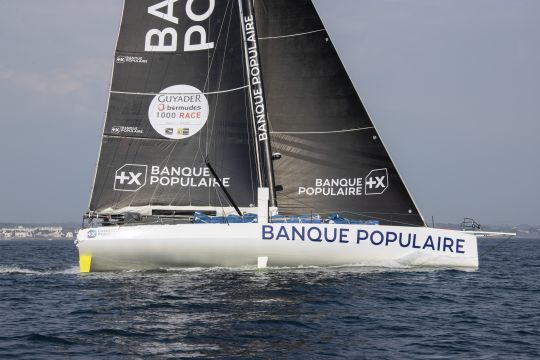
A common preparation according to the supports
Whether it's a Mini, Class40, Figaro or IMOCA, the basis of the preparation job remains the same. However, the time required increases according to the size of the boat, because the details are more numerous on an IMOCA boat than on a Mini.
"The diameter of the lines changes, but the preparation to be done is broadly similar. The preparation time is much more important on an IMOCA. On a Mini for example, we don't have an engine, there is a manual pump... On the IMOCA, there are many more things to check... But the logic of navigation and preparation is similar. A good preparer in Mini will have no difficulty in moving to Class40 or IMOCA."
Play the versatility or expertise card
If some preparers are "jacks-of-all-trades", others have specific expertise in a particular field. Some also master several fields, but have more expertise on certain systems: motorization, hydraulics, etc
"There are generalist preparers and specialized preparers. There are specificities in preparation. For example, expertise in electronics and calibration, in hydraulics for the keel, in lay-up for the composite are quite sought after. You have to be a jack-of-all-trades, but also a specialist in one area concludes Felix de Navacelle.
